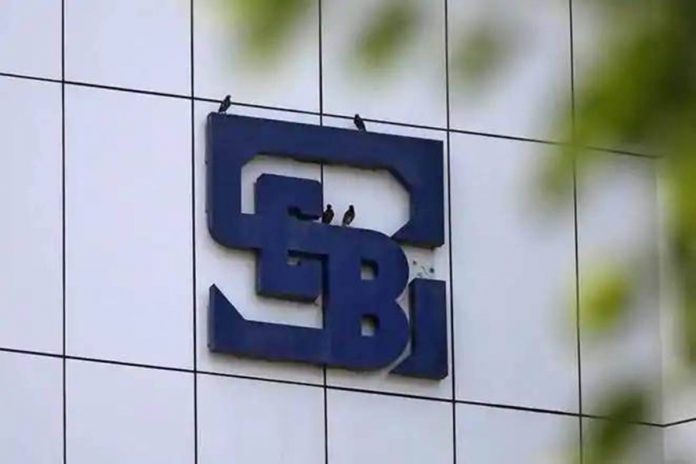This article is written by Amarpal Singh, a student at School of Law, UPES Dehradun.
Table of Contents
Introduction
The Securities and Exchange Board of India (hereinafter SEBI) approved a set of amendments to SEBI (Listing Obligation and Disclosure Requirements), Regulations 2015 (hereinafter LODR Regulations), in its board meeting held on 29th June 2021 with respect to the regulatory provision related to independent directors. The step was taken in order to strengthen the corporate governance framework in listed companies.
While the approved amendments will be applicable from 1st January 2022. This article aims to provide an overview and analysis of the amendments.
Definition of independent directors
Independent directors are non – executive directors on the board who do not have any pecuniary and material relationship with the company or any related persons, except sitting fees.
The provisions related to independent directors are contained in the Companies Act, 2013 and LODR Regulations.
Amendments approved by SEBI
Approval by shareholders
- Existing position
In the current scenario, an independent director can be removed through a simple majority in the first term after the appointment and through a special majority in the second term. In the consultation paper on ‘Review of Regulatory Provision for Independent Directors’ (hereinafter consultation paper) released by SEBI on 1st March 2021, SEBI had proposed that appointment, removal and re-appointment of independent directors should be subject to dual approval (approval by shareholders and the majority of minority shareholders other than promoter and promoters group shareholders).
- Approved amendment
SEBI in its board meeting has approved that appointment, removal and re-appointment of independent directors should only be done by passing a special resolution. Further SEBI has also reduced the time frame to three months for the appointment of directors (including independent directors) or the next general meeting from the appointment of director at the board whichever is earlier. This is done in order to seek quick approval for the appointment of directors by the shareholders.
Role of Nomination and Remuneration Committee
- Existing position
According to the LODR Regulations, the listed company is required to set up a Nomination Remuneration Committee (hereinafter NRC) which should consist of at least 3 directors, all of them should be non -executive directors and at least 1/2 should be independent directors. The role of NRC is to find a suitable candidate for the post of independent director.
- Approved amendment
SEBI has modified the composition of NRC to include 2/3rd of independent directors. Further, SEBI has also enhanced the role of NRC in the selection of independent directors. NRC is required to critically evaluate the skills of the candidate and make more disclosures. This step is taken so that the skills of the candidate can be evaluated by the companies against the competencies which are required by the board, for optimal board composition.
Cooling off period
- Existing position
The SEBI LODR Regulations provides, a cooling-off period for the person who is proposed to be appointed as an independent director, which interalia stated as follows –
- 3 years for the person who has been an employee/Key Managerial Personnel (hereinafter KMP) or his/her relative has been a KMP of the listed company/its associate/holding/subsidiary company.
- 2 years in a scenario where there is a material pecuniary relationship between the person his/her relative and the listed company/its associate/holding/subsidiary company.
In the consultation paper, SEBI had proposed to harmonize the cooling-off period for the above categories to 3 years.
- Approved amendment
Cooling off period of 3 years has been introduced for former employees/ KMP his/her relatives of the listed company or the promoter group as an eligibility criterion for his appointment as independent directors in the listed company. Whilst cooling off period has been waived removed for relatives of employees of the listed company it’s associate/holding/subsidiary company for the appointment of independent directors.
Resignation of independent directors
- Existing position
According to LODR Regulation in the current scenario, an independent director who tenders his resignation has to disclose to stock exchanges the reason for his resignation along with the confirmation that there is no other material reason for his resignation. This has to be done by the independent director within 7 days of his resignation. In the consultation paper, it was proposed by SEBI that the independent director should disclose his entire resignation letter along with a list of his present/past directorships and memberships in the board committees.
- Approved amendment
SEBI has enhanced the transparency with respect to the resignation of independent directors by mandating independent directors to disclose the entire resignation letter along with a list of all present and past directorship and membership in the board committees. Further SEBI has introduced a cooling-off period for independent directors who want to be employed as whole-time directors in the same company/its holding/associate/subsidiary company or any company belonging to the promoter group.
Remuneration
- Existing position
In the current scenario, independent directors are paid sitting fees which are capped at 1 lakh rupees, profit linked commission with an overall limit and reimbursement of expenses. They are not entitled to receive stock options according to the Companies Act, 2013 and LODR Regulations. SEBI in the consultation paper had considered giving the independent directors stock option with a vesting period of 5 years to replace profit linked commission so that independent directors have long term interest in the company.
- Approved amendment
SEBI has not approved any amendment with respect remuneration of independent directors. Whilst, it has decided to make a reference to the Ministry of Corporate Affairs, to give greater flexibility to companies to decide remuneration of independent directors, which may include perks like sitting fees, employee stock options, profit linked commission, etc., within the prescribed limit of Companies Act, 2013.
Directors and officers insurance
- Existing position
According to LODR top 500 listed companies are required to undertake directors and officers insurance for all their independent directors of such quantum and risks as may be determined by the board of directors.
- Approved amendment
SEBI has extended the requirement of undertaking Directors and officers insurance for all independent directors by market capitalization to the top 1000 listed companies.
Composition of the audit committee
According to LODR Regulations, the audit committee is required to have 2/3rd of its members as independent directors. The listed company is required to obtain prior approval from the audit committee for related party transactions. In the consultation paper, SEBI had proposed that the audit committee should comprise 2/3rd of independent directors and 1/3rd of non-executive directors who are not related to promoters or nominee directors if any.
- Approved amendment
According to the amendment approved by SEBI, the composition of the audit committee was changed, but all the related party transactions will be required to be approved only by independent directors on the audit committee.
Analysis
The amendments brought in the LODR Regulations by SEBI in the board meeting are based on the proposals in the consultation proposals. These amendments will bring more transparency in the selection, appointment and resignation of independent directors at a holistic level. The entire system that currently favours the majority shareholders will be overhauled. The approved amendments clearly indicate the SEBI’s intention to strengthen the corporate governance framework in listed companies.
However, the efficacy of these amendments can only measure once these are applied to practice. Some major concerns are also part and parcel of the approved framework, for example, autonomy and power have been granted to independent directors to approve related party transactions, but what are the qualitative and quantitative aspects that will be analyzed by independent directors before approving the related party transactions. Another big hurdle of this framework is to amend the Companies Act, 2013 to provide greater flexibility with respect to the remuneration of independent directors.
Conclusion
It can be concluded, that efficacy of the amendments as approved by SEBI in its board meeting will only be measured when it is in form. Further, clarity on the framework will be provided when the amendments in the LODR Regulations are notified by SEBI.
References
- Shruti Zota & Rebha Dakshini, SEBI amends norms for independent directors, Linkedin
- (Jul. 17, 2021), https://www.linkedin.com/pulse/sebi-amends-norms-independent-directors-/?trackingId=t6Kh2n0VbOkW9PYINEOsWQ%3D%3D.
- Sai Venkateshwaran, SEBI’s new LODR empower independent directors, but allowing for a lead independent director is crucial, Financial Express, (Jul. 05, 2021) https://www.financialexpress.com/opinion/sebis-new-lodr-amendments-empower-independent-directors-but-allowing-for-a-lead-independent-director-is-crucial/2283723/.
- Rohit Jain, SEBI Proposes new norms for independent director, appointment , removal , remuneration (Mar. 01, 2021), https://www.bloombergquint.com/law-and-policy/sebi-proposes-new-norms-for-independent-director-appointment-removal-remuneration.
LawSikho has created a telegram group for exchanging legal knowledge, referrals, and various opportunities. You can click on this link and join:
https://t.me/joinchat/J_0YrBa4IBSHdpuTfQO_sA
Follow us on Instagram and subscribe to our YouTube channel for more amazing legal content.
 Serato DJ Crack 2025Serato DJ PRO Crack
Serato DJ Crack 2025Serato DJ PRO Crack











 Allow notifications
Allow notifications


